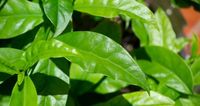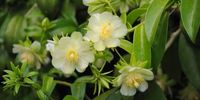The Agência Nacional de Vigilância Sanitária (Anvisa) has taken a significant step in regulating dietary supplements in Brazil by prohibiting the sale, manufacture, and distribution of products containing ora-pro-nóbis (Pereskia aculeata). This decision, published on April 3, 2025, in the Diário Oficial da União, comes amid concerns regarding the safety and efficacy of this unconventional food plant as an ingredient in dietary supplements.
Anvisa’s resolution, numbered 1.282/2025, explicitly states that ora-pro-nóbis is not authorized as a constituent for food supplements. The agency highlighted that the marketing and advertisement of these products have been occurring irregularly, violating specific technical regulations. “For a specific ingredient to be authorized as a food supplement, it must undergo a safety and efficacy assessment,” Anvisa explained in its official communication. This assessment must be supported by scientific studies demonstrating that the ingredient is a source of essential nutrients or substances relevant to human health.
The prohibition extends to all aspects of the supplement lifecycle, including manufacturing, sales, distribution, and advertising. Anvisa has mandated that any supplements currently on the market containing ora-pro-nóbis will be collected and removed from shelves. This measure reflects the agency's commitment to ensuring that dietary supplements do not make therapeutic claims, which are reserved for medications.
“Food supplements cannot claim therapeutic effects such as treatment, prevention, or cure of diseases,” Anvisa reiterated, emphasizing that these products are intended for healthy individuals seeking to complement their diets with nutrients, bioactive substances, enzymes, or probiotics.
Despite the prohibition of supplements, the consumption and sale of ora-pro-nóbis in its natural form remain permitted. This climbing, thorny plant is well-known for its nutritional and medicinal properties and is particularly popular in Brazilian cuisine, especially in the states of Goiás and Minas Gerais. It is recognized as an Unconventional Food Plant (PANC) and is valued for being rich in proteins, fibers, iron, calcium, and vitamins A and B3.
Manufacturers have often touted ora-pro-nóbis as beneficial for weight loss, cholesterol control, and blood glucose regulation. However, these claims have not been substantiated by scientific evidence, leading to the regulatory action by Anvisa. The agency’s decision aims to protect consumers from misleading information and ensure that dietary supplements meet stringent safety and efficacy standards.
Ora-pro-nóbis can be consumed in various ways, including in salads, soups, stir-fries, and even teas. Its nutritional benefits are numerous: it aids in weight loss due to its high fiber content, promotes eye health through lutein and zeaxanthin, improves digestive function, strengthens the immune system thanks to its antioxidant properties, and helps prevent anemia due to its iron content.
This regulatory action by Anvisa reflects a broader trend in health and safety governance, where agencies are increasingly scrutinizing dietary supplements to ensure consumer safety. As the market for health products continues to grow, the need for clear regulations and scientific backing becomes more critical.
In summary, the prohibition of ora-pro-nóbis in dietary supplements underscores the importance of regulatory oversight in the health supplement industry. Consumers are encouraged to be cautious and informed about the products they choose to incorporate into their diets. While ora-pro-nóbis remains a valuable food source in its natural form, its use as a supplement will be strictly regulated to ensure that only safe and effective products reach the market.







